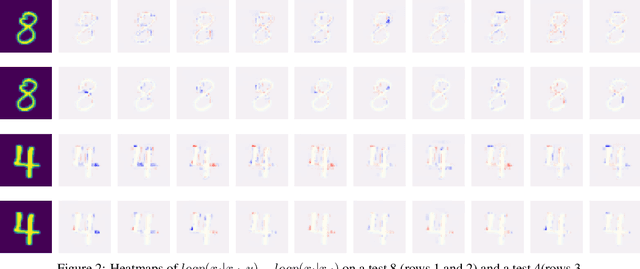Conditional Autoregressors are Interpretable Classifiers
Paper and Code
Mar 31, 2022

We explore the use of class-conditional autoregressive (CA) models to perform image classification on MNIST-10. Autoregressive models assign probability to an entire input by combining probabilities from each individual feature; hence classification decisions made by a CA can be readily decomposed into contributions from each each input feature. That is to say, CA are inherently locally interpretable. Our experiments show that naively training a CA achieves much worse accuracy compared to a standard classifier, however this is due to over-fitting and not a lack of expressive power. Using knowledge distillation from a standard classifier, a student CA can be trained to match the performance of the teacher while still being interpretable.
* 4 pages, 2 figures
 Add to Chrome
Add to Chrome Add to Firefox
Add to Firefox Add to Edge
Add to Edge